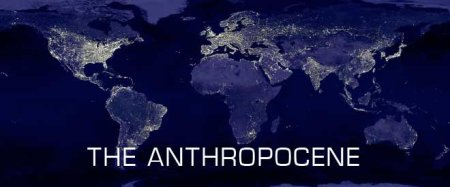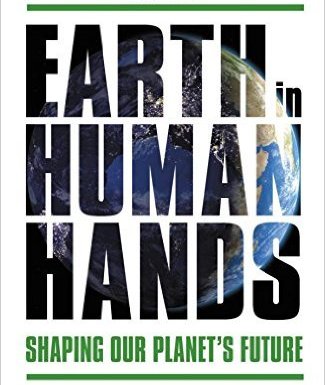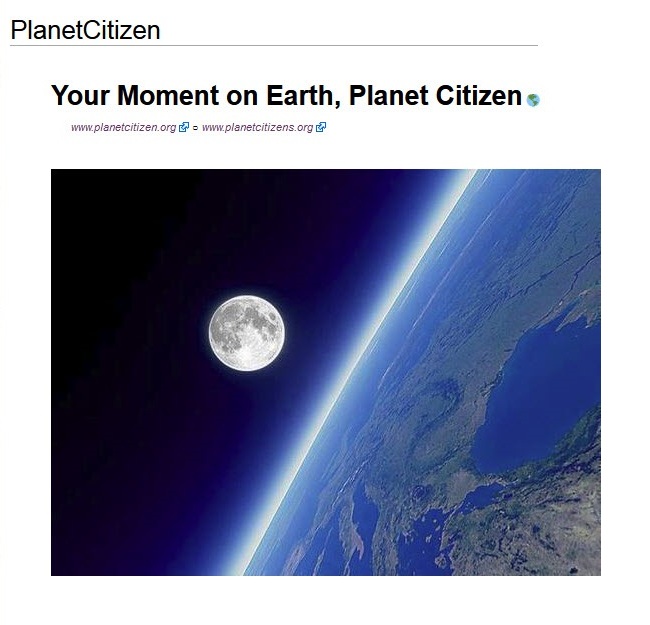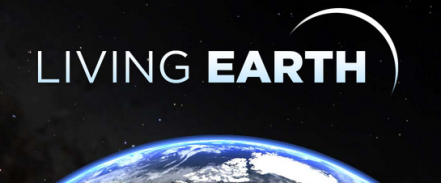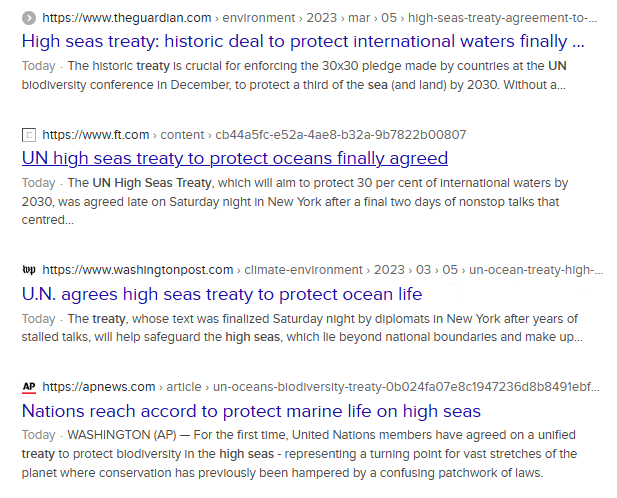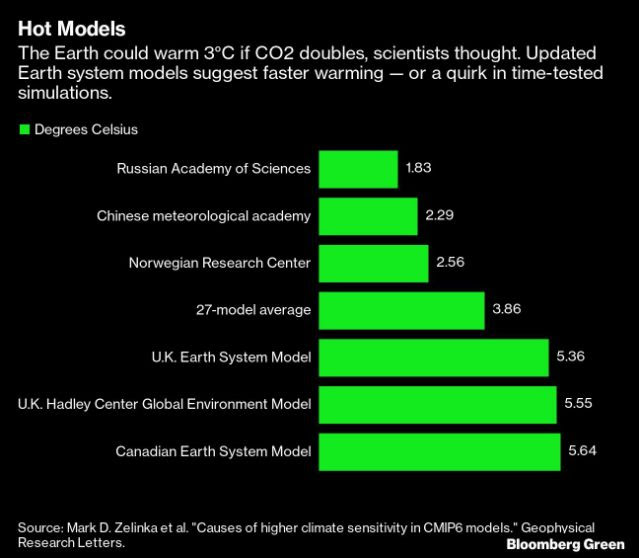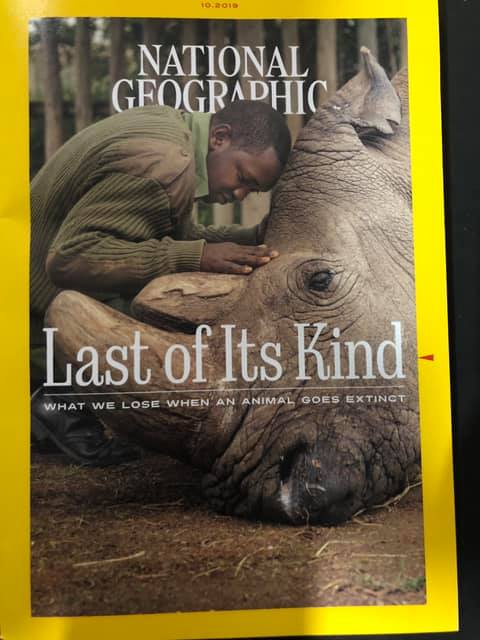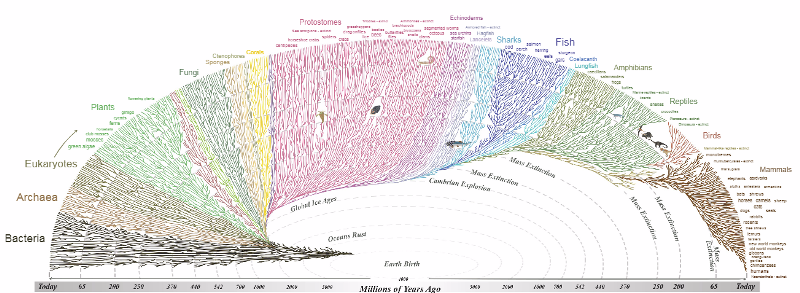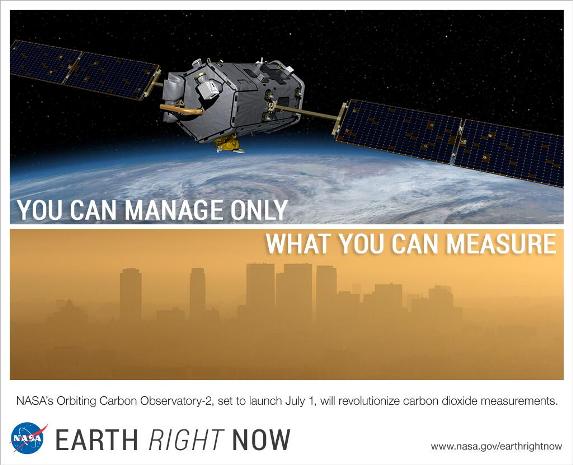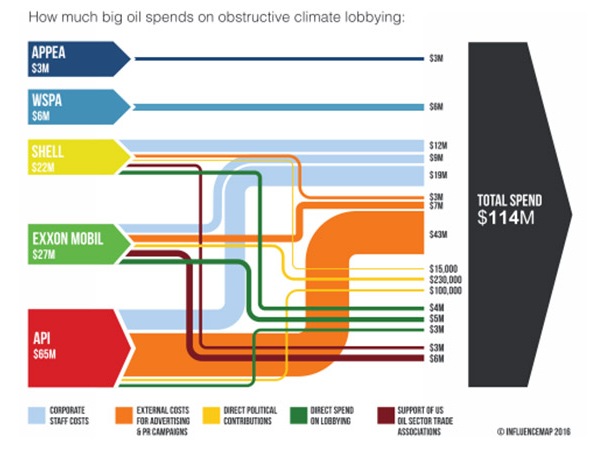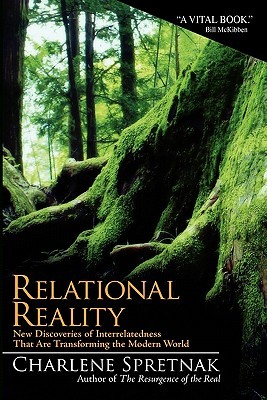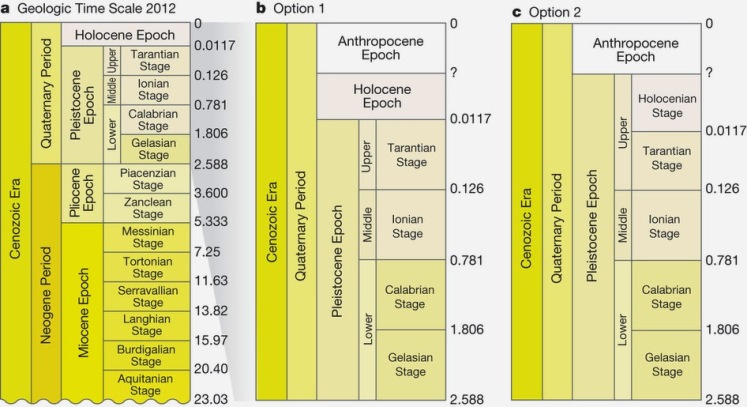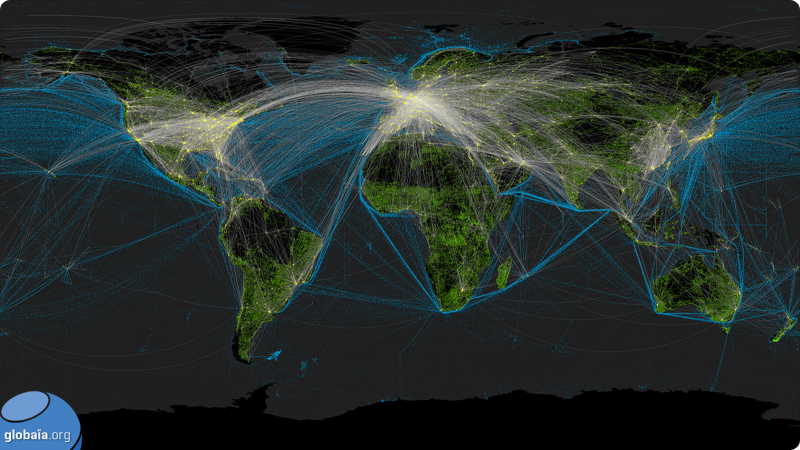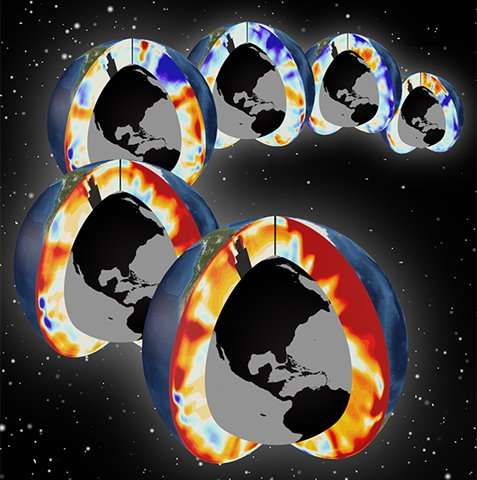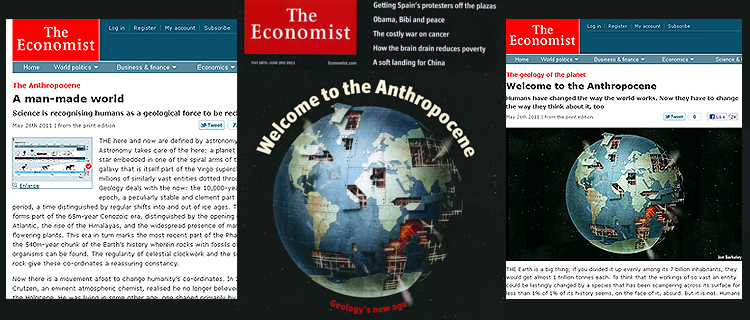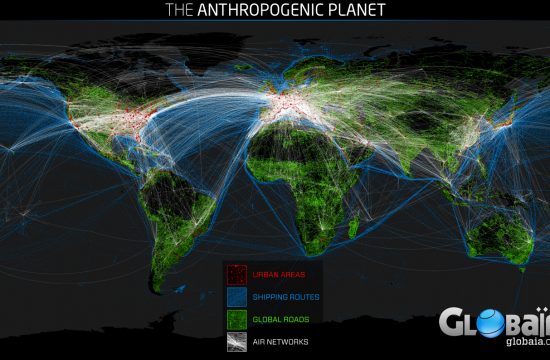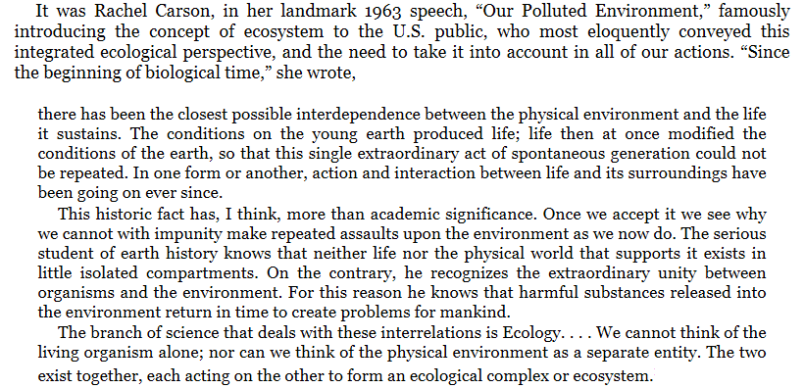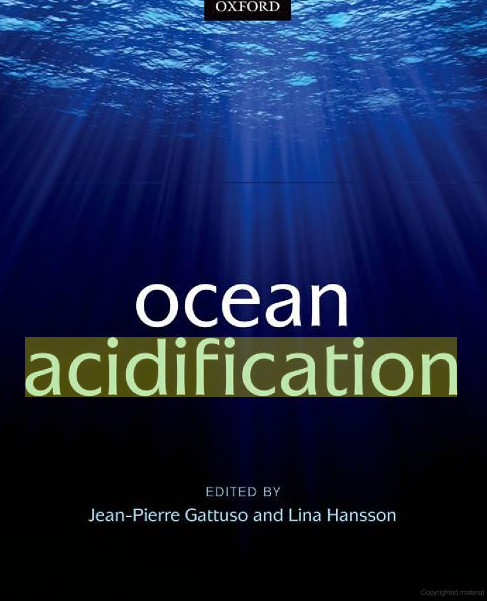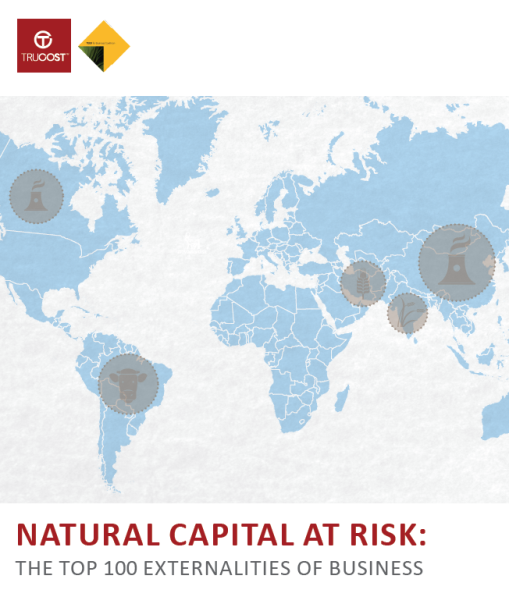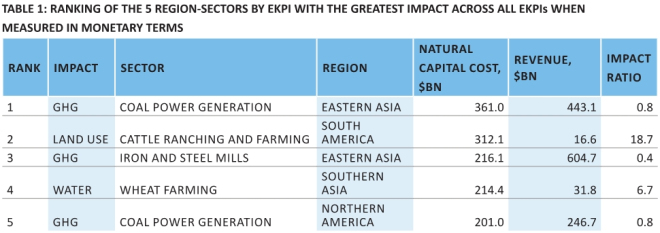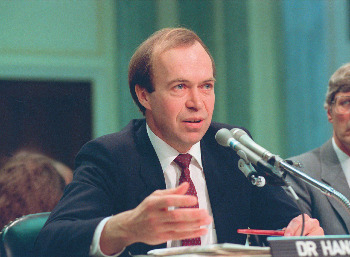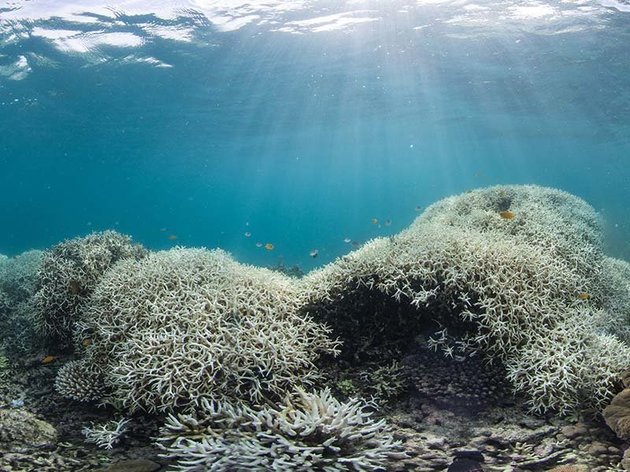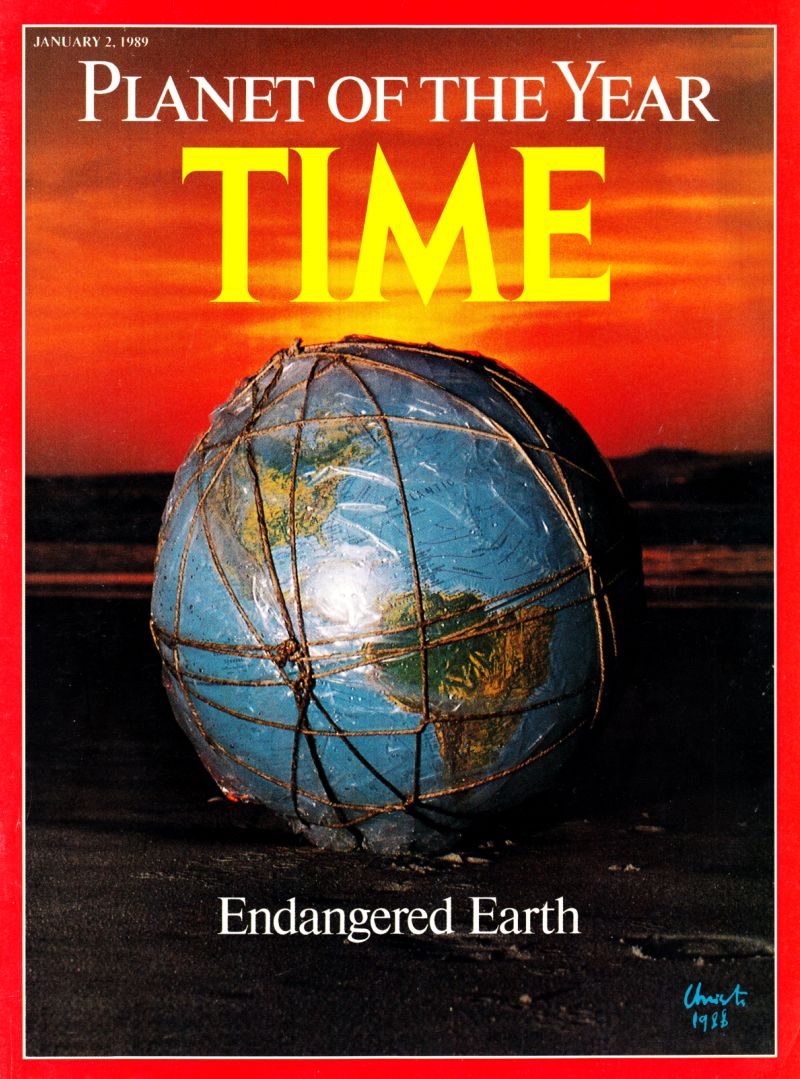Anthropocene
- 🌎
Earth's Future Is in Our Hands
- Challenge: Preserve and Protect Life on Planet Earth
Planet Citizen Vision of Living Earth
The Living Planet Index (LPI)
Tracking the health of nature over 50 years
The Living Planet Index (LPI)—which tracks populations of mammals, birds, fish, reptiles, and amphibians—reveals an average 69% decrease in monitored wildlife populations since 1970. The 2022 LPI analyzed almost 32,000 species populations. It provides the most comprehensive measure of how they are responding to pressures in their environment.
Living Planet Report 2022
Via the World Wildlife Fund (WWF)
Wildlife populations plummet by 69%
The Living Planet Report 2022 is a comprehensive study of trends in global biodiversity and the health of the planet. This flagship WWF publication reveals an average decline of 69% in species populations since 1970. While conservation efforts are helping, urgent action is required if we are to reverse nature loss.
Interlinked emergencies: Climate change and biodiversity loss
The evidence is unequivocal—we are living through the dual crises of biodiversity loss and climate change driven by the unsustainable use of our planet’s resources. Scientists are clear: unless we stop treating these emergencies as two separate issues neither problem will be addressed effectively.
Our broken relationship with nature
Climate change and biodiversity loss are not only environmental issues, but economic, development, security, social, moral, and ethical issues too. Industrialized countries are responsible for most environmental degradation but it is developing nations that are disproportionately impacted by biodiversity loss. We all have a role to play in building a nature-positive society that safeguards the planet for the good health of everyone.
🌎
GreenPolicy360: The worldwide ban on ozone-depleting chemicals was the first international environmental agreement. The Montreal Protocol was out in front in its ability to envision cooperative international action to confront a global threat and led directly to a generation of climate policy actions...
○ ○ ○ ○ ○ ○ ○ ○ ○ ○ ○ ○ ○ ○ ○ ○ ○ ○ ○ ○ ○
2023
Nations Agree on Language for Historic Treaty to Protect Ocean Life
The United Nations agreement is a significant step toward protecting biodiversity under growing threat from climate change, overfishing and seabed mining
March 4, 2023
After two decades of planning and talks that culminated in a grueling race over the past few days in New York, a significant majority of nations agreed on language for a historic United Nations treaty that would protect ocean biodiversity.
As marine life faces threats from climate change, overfishing, the possibility of seabed mining and other dangers, the treaty would make it possible to create marine-protected areas and enact other conservation measures on the “high seas,” the immense expanse of ocean covering almost half the world.
“Today the world came together to protect the ocean for the benefit of our children and grandchildren,” said Monica Medina, an assistant secretary of state. “We leave here with the ability to create protected areas in the high seas and achieve the ambitious goal of conserving 30 percent of the ocean by 2030.”
Nations Agree on Language for Historic Treaty to Protect Ocean Life
GreenPolicy360: This is historic and a foundation of legal agreement to build on... The text of the High Seas agreement comes after decades of geopolitical negotiating over ocean resources, rights and responsibilities of nations to the protection of oceans and ocean life, and now moves on to the realities of legal enforcement of promises/pledges that have now been memorialized
Nations agree on ‘world-changing’ deal to protect ocean life
More than 190 countries have reached a landmark deal for protecting the biodiversity of the world’s oceans, agreeing for the first time on a common framework for establishing new protected areas in international waters.
Via the Associated Press
Nichola Clark: “a once-in-a-generation opportunity to protect the oceans — a major win for biodiversity.”
The treaty will create a new body to manage conservation of ocean life and establish marine protected areas in the high seas. Clark said that’s critical to achieve the U.N. Biodiversity Conference’s recent pledge to protect 30% of the planet’s waters, as well as its land, for conservation.
Treaty negotiations initially were anticipated to conclude Friday (March 3), but stretched through the night and deep into Saturday. The crafting of the treaty, which at times looked in jeopardy, represents “a historic and overwhelming success for international marine protection,” said Steffi Lemke, Germany’s environment minister.
(Note from GreenPolicy360: Lemke is a member of the German Green Party and one of the co-founders of the Green Party in the GDR in 1989... see more about the Greens, Bündnis 90/Die Grünen who hold a number of top positions in the current German government -- https://en.wikipedia.org/wiki/Alliance_90/The_Greens)
“For the first time, we are getting a binding agreement for the high seas, which until now have hardly been protected,” Lemke said. “Comprehensive protection of endangered species and habitats is now finally possible on more than 40% of the Earth’s surface.”
The question now is how well the ambitious treaty will be implemented.
Formal adoption also remains outstanding, with numerous conservationists and environmental groups vowing to watch closely.
The high seas have long suffered exploitation due to commercial fishing and mining, as well as pollution from chemicals and plastics. The new agreement is about “acknowledging that the ocean is not a limitless resource, and it requires global cooperation to use the ocean sustainably...”
Via ICUN.org
International Union for Conservation of Nature
We congratulate the President of the Intergovernmental Conference on Marine Biodiversity of Areas Beyond National Jurisdiction, the secretariat of the UN, and all the state delegates for their efforts.
“The High Seas Treaty opens the path for humankind to finally provide protection to marine life across vast swathes of the ocean. Its adoption will close a significant gap in international law and offer a framework for governments to work together to protect global ocean heath, climate resilience, and the socioeconomic wellbeing and food security of billions of people. We stand ready to support its implementation,” says IUCN Director General, Dr Bruno Oberle.
Although more ambitious measures will be needed, this legally-binding agreement marks an important step towards protecting the two-thirds of the ocean that lies beyond national jurisdiction.
IUCN particularly applauds the alignment of the Treaty with other international commitments including the Kunming-Montreal Global Biodiversity Framework, and the creation of a special fund to finance the rehabilitation and ecological restoration of marine biodiversity.
IUCN and its Members have been advocating for such an agreement for two decades and have been providing scientific and legal advice to negotiators since the start of the formal negotiations (in 2018), in particular on provisions concerning area-based management tools, especially marine protected areas. Commitments must now be implemented in ways that help address climate change and the many threats to marine ecosystems, and guarantee the critical benefits marine ecosystems provide to people.
IUCN is calling for adoption and ratification to be fast-tracked, to bring the High Seas Treaty into force. The Union is offering its continued support to Parties and stakeholders to lay the foundation for a rapid, effective, and equitable implementation.
🌎
What It Might Take for Humans to Continue to Exist
- by Alice Bell
- Traversing science, politics, and technology, Our Biggest Experiment shines a spotlight on the little-known scientists who sounded the alarm to reveal the history behind the defining story of our age: the climate crisis.
- ○ ○ ○ ○
- Under a White Sky
- by Elizabeth Kolbert
- Kolbert is well-known as the best-selling author of The Sixth Extinction. Her reporting brought the ongoing mass-extinction event that we're inadvertently causing now from talk in scientific literature to common knowledge. In this new book, Kolbert once again looks out at the new Anthropocene Earth:
- "People have, by now, directly transformed more than half the ice-free land on earth — some twenty-seven million square miles — and indirectly half of what remains. We have dammed or diverted most of the world's major rivers. Our fertilizer plants and legume crops fix more nitrogen than all terrestrial ecosystems combined, and our planes, cars, and power stations emit about a hundred times more carbon dioxide than volcanoes do. ...humans and livestock outweigh all vertebrates combined, with the exception of fish. In the age of man, there is nowhere to go, and this includes the deepest trenches of the oceans and the middle of the Antarctic ice sheet, that does not already bear our Friday-like footprints."
- The consequence of the extraordinary power we're exerting on the Earth is that the planet is changing. It's sliding out of the state we found it in 10,000 years ago when the last ice age ended. But this new planet seems like it's going to be a lot less hospitable to our "project of civilization" than the one we've started with. In response to this sobering fact, communities across the world are trying to shift from inadvertent impacts on the natural world to conscious and intentional control. Kolbert's book is, essentially, reporting from the front lines of these frenzied efforts.
- ○ ○ ○ ○
- What's Humanity Cooking Up for Future Generations?
- Choosing a Future Scenario, Voluntarily or Involuntarily
Trajectories of the Earth System in the Anthropocene
Scientist Michael Mann on ‘Low-Probability But Catastrophic’ Climate Scenarios
Anthropogenic climate disruption (ACD)
Climate Change - Global Warming Keyword-Terms
Warning Flags Abound
Human-caused climate disruption worsening at accelerating rate...
In an article this summer in the Proceedings of the National Academy of Sciences, 16 climate scientists from around the world argued that the planet may be much closer than previously realized to locking in what they call a “hothouse” trajectory—warming of 4C or 5C (7F or 9F), “with serious challenges for the viability of human societies.”
Jem Bendell, a professor at the University of Cumbria who popularized the term "deep adaptation", calls it a mix of physical changes—pulling back from the coast, closing climate-exposed industrial facilities, planning for food rationing, letting landscapes return to their natural state—with cultural shifts, including “giving up expectations for certain types of consumption” and learning to rely more on the people around us.
“The evidence before us suggests that we are set for disruptive and uncontrollable levels of climate change, bringing starvation, destruction, migration, disease and war,” he wrote in a paper he posted on his blog in July after an academic journal refused to publish it. “We need to appreciate what kind of adaptation is possible.”
Ethics of Human impacts on the Environment
- by Rika Preisera, Laura M.Pereira, Reinette O. Biggs
The “Anthropocene” demands new forms of engagement and responses to achieve sustainability, but different fields suggest quite different approaches.
We set out four perspectives that we argue have fundamentally different framings of the “problem” of the Anthropocene, and consequently point to very different responses to achieving sustainability.
These four fields include: the eco-modernist perspective, the planetary stewardship paradigm, the pathways to sustainability approach, and the critical post-humanist paradigm.
We suggest that a deeper underlying framing which can help integrate aspects of these four perspectives is an understanding of the “Anthropocene as responsibility”.
We argue that from this perspective it becomes possible to engage with an ethics of responsibility that comes with being human and acting on the planet, in the face of an uncertain and unknowable future.
Integral Ecology
Pope Francis, ethics in the modern age: eco-encyclical to 1.2 billion Catholics focuses on "Integral Ecology" #GreenPolicy360
- Protecting Life on Earth
- ○ ○ ○ ○
Ⅰ Ⅱ Ⅲ Ⅳ Ⅴ Ⅵ Ⅶ Ⅷ Ⅸ Ⅹ Ⅰ Ⅱ Ⅲ Ⅳ Ⅴ Ⅵ Ⅶ Ⅷ Ⅸ Ⅹ Ⅰ Ⅱ Ⅲ Ⅳ Ⅴ
The Nuclear Age, the Anthropocene Era
New, more lethal, 'smart', 'usable' tactical and strategic nuclear weapons
- The power to destroy life on Earth in apocalyptic, existential terms
Calculus of War; Cold War 2.0; Nuclear Weapons; Nuclear Proliferation
Ⅰ Ⅱ Ⅲ Ⅳ Ⅴ Ⅵ Ⅶ Ⅷ Ⅸ Ⅹ Ⅰ Ⅱ Ⅲ Ⅳ Ⅴ Ⅵ Ⅶ Ⅷ Ⅸ Ⅹ Ⅰ Ⅱ Ⅲ Ⅳ Ⅴ
Surviving the Challenge of Anthropocentric Politics ("What's In It for Me Thinking) and Business-as-Usual
Money, Politics and Policy: A moment-in-time and money-in-politics - "Fossil fuel millionaires pumped more than $100 million into Republican presidential super PACs last year. This means that $1 out of every $3 donated to Republican candidates coming from hyper-rich individuals came from people who made their fortunes from fossil fuels. In boosting GOP politicians, these funders were simply acting to protect their cash cows from those of us who happen to give a damn about the planet."
A Green Measurement, Evolving Eco-nomics
○
Science and Impacts of Humans
"A recent report in March 2016 by the Center for American Progress Action Fund shows that more than six out of every 10 Americans are represented by someone in Congress who denies the reality of Anthropogenic Climate Disruption (sometimes referred to as ACD or AGW as in anthropogenic global warming and CAGW - catastrophic anthropogenic global warming). According to the report, 59 percent of the Republican House caucus and an amazing 70 percent of the Republicans in the Senate deny ACD is real. The report also reveals that, according to the US Census, 202,803,591 Americans are represented by an ACD denier."
"The general public is way ahead of Congress — a recent poll found that 76 percent of Americans said they believed global climate change is occurring, including 59 percent of Republicans... and nationally 67 percent support President Obama’s plan to regulate power plants to cut carbon emissions."
○
US Congress: Politics Against Consensus Science
- US Republican party act in opposition to Earth Science and Environmental Security
Money-in-Politics: Fossil Fuel Companies and Lobbying Against the Science of ACD
♦ NYT: Private Empire -- "A Well-Oiled Machine"
♦ NY's State Attorney and Calif's AG Go After ExxonMobil
♦ FBI Probe, More AGs Support Investigation of ExxonMobil
Money-in-Politics: Energy Industry Dominates Energy Policy
- Millions spent annually to influence lawmakers and public discourse on climate change
- Subsidies to the oil/gas industry continue in the billions
○ ○ ○ ○ ○ ○ ○ ○ ○ ○ ○ ○ ○ ○ ○ ○
Anthropogenic Climate Disruption: The ACD Debate, Updates, & PR Money in the Media
"Runaway Climate Change": Politics and Powerful Interests
The largest corporations in the world and the current energy mix assure continued ACD. Yet everyday the reports and results of Earth Science demonstrate the approaching environmental security crisis. Immediate eco-nomic change in the energy mix is necessary to begin to reduce human-caused impacts with growing risks and rising costs to the environment. Environmental security and national security join together as nations move forward with renewable energy and sustainable economics.
More on Money-in-Politics in the US / GreenPolicy looks at money-in-politics
○ ○ ○ ○ ○ ○ ○ ○ ○ ○ ○ ○ ○ ○ ○ ○
- Anthrocene or Anthropocene? Anthropogenic or Anthropogenically?
Anyway you look at these self-centered words, you and your billions of fellow 'anthro-inhabitants' (planet citizens) are having an unprecedented human impact on Earth's ecology...
When GreenPolicy began at Green Institute, one of our advisors was Bill McKibben, author of "End of Nature". Our point of view brought a larger-than-self perspective, recognizing the dawning and daunting fact that humans had entered a new age, one where we could no longer speak of nature as 'apart' from humanity, where writers and poets would speak of nature as distinct and separate force 'beyond' us all.
The "End of Nature" focused on this new deep reality, where we become aware of our responsibilities for what we have created and, as many societies and cultures and 'good books' have spoken of throughout history, the need to learn and re-learn, generation to generation, the ancient wisdom of 'what goes around comes around' and we will, for good or bad, 'reap what is sown.'
- "Whatever we once thought Nature was — wildness, God, a simple place free from human thumbprints, or an intricate machinery sustaining life on Earth — we have now given it a kick that will change it forever. Humanity has stepped across a threshold. In his free-ranging and provocative book, Bill McKibben explores the philosophies and technologies that have brought us here, and he shows how final a crossing we have made."
- — James Gleick, author of Chaos
- "Bill McKibben's The End of Nature deals with humanity's effect on our natural environment the same way that Jonathan Schell's Fate of the Earth presented the harsh facts of the potential nuclear destruction of life. Both books left me better informed, deeply saddened and wondering if the human species has too much natural ability to dominate (each other and our environment) without the wisdom to use such abilities for the promotion of life."
- — Christine Peringer, "Peace and Environment News"
○ ○ ○ ○ ○ ○ ○ ○ ○ ○ ○ ○ ○ ○ ○ ○
Relational Reality: It's All Connected
○ ○ ○ ○ ○ ○ ○ ○ ○ ○ ○ ○ ○ ○ ○ ○
"It's All Connected" (And You Are Too...)
Planet Citizen / Earth Observations / Earth Right Now / Climate News
Humans and their creations/products/industries/developments/lifestyles/extractions and emissions are having a profound impact on the planet, an impact science is beginning to measure and assess. As it is, the human species no longer stands 'outside' the forces of nature (if we ever did) but rather we are now impacting and changing the patterns and dynamics of nature going forward.
... On climate humans are impacting ... on agriculture, oceans, air and water, forests and fisheries, species and varieties ... food chains beginning with the least of creatures (phytoplankton and die-offs) to the large, recognizably endangered mammals ... the modern, industrial activities of humankind are shifting the geologic era in which we live. Anthro-genetics drive us, so to speak, and we will continue to shift future dynamics of nature, changing systems over time as we develop and populations surge. The extent of humanity's impact on the planet is only now beginning to be measured, with baseline data and science surveying the extent and depth of change -- and the resulting impacts on natural systems are sending flashing, warning signals. The evidence is strong and, apart from those in denial, the evidence is resonating strongly, suggesting it is time to act to sustain the biosphere and environmental systems on which our quality of life depends.
○ ○ ○ ○ ○ ○ ○ ○ ○ ○ ○ ○ ○ ○
Altering the Planet
Generation Anthropocene: Planet Citizens Begin to Recognize an Altered Planet and What This Means — Via the Guardian
Stephen Hawking / ITV:
- On 'Runaway climate change'... A rise in ocean temperature would melt the ice-caps, and cause a release of large amounts of carbon dioxide from the ocean floor... That would have catastrophic effects." #AGW #CAGW
○ ○ ○ ○ ○ ○ ○ ○ ○ ○ ○ ○ ○ ○
Economic Challenges
Economics and Eco-nomics
Eco-nomics, a New Political Economy
Capitalism and the Environment
Focusing in -- Nathanael Johnson: "Unbridled capitalism cannot accurately value nature, and does not recognize the property rights of the people who depend upon the natural world for survival.... When capitalism is bridled and harnessed, so as to recognize the rights of the disenfranchised, it can provide prosperity and protect the environment."
○ ○ ○ ○ ○ ○ ○ ○ ○ ○ ○ ○ ○ ○
Time is divided by geologists according to marked shifts in Earth’s state. Recent global environmental changes suggest that Earth may have entered a new human-dominated geological epoch, the Anthropocene. Here we review the historical genesis of the idea and assess anthropogenic signatures in the geological record against the formal requirements for the recognition of a new epoch. The evidence suggests that of the various proposed dates two do appear to conform to the criteria to mark the beginning of the Anthropocene: 1610 and 1964. The formal establishment of an Anthropocene Epoch would mark a fundamental change in the relationship between humans and the Earth system.
○ ○ ○ ○ ○ ○ ○ ○ ○ ○ ○ ○ ○ ○
Earth360 / Earth Science / EarthPOV:
Cartography of the Anthropocene
○ ○ ○ ○ ○ ○ ○ ○ ○ ○ ○ ○ ○ ○
How fast are the oceans warming? Fast
Study reports heat absorbed by oceans has doubled since 1997
Cause for Concern: US National Lab points at ocean data
Air, what about the atmosphere?
The atmosphere is a 'thin blue layer; Human impact on it is an experiment-in-progress
The atmosphere as described by astronauts is 'narrow', 'fragile', 'paper-thin', 'life-enabling'
○ ○ ○ ○
On Earth, what about the basics, dirt, the soil, the basis of agriculture, food?
One-third of the world's productive soils have become degraded
○ ○ ○ ○
Is Earth in a new geological phase thanks to us?
Is this era an Anthropocene era?
Yes, it is an Anthropocene era
Back to the Anthrocene
In 1992, the science writer Andrew Revkin – in his book Global Warming: Understanding the Forecast – coined the term “Anthrocene” to describe a new geological era dominated by the actions of humans. Slideshare
More recently, he has quoted from his book: “We are entering an age that might someday be referred to as, say, the Anthrocene. After all, it is a geological age of our own making. The challenge now is to find a way to act that will make geologists of the future look upon this age as a remarkable time, a time in which a species began to take into account the long-term impact of its actions.” It now appears that like all respectable geological eras, the Anthrocene will be clearly identifiable as a distinct transition in the stratigraphy of the rocks that will make up that future world.
Over the past 200 years, the oceans have absorbed about half of the Carbon dioxide released into the atmosphere as a by-product of burning fossil fuels such as oil and gas. Researcher’s form the National Oceanic and Atmospheric Administration in the US have been monitoring the acidifying effect that this additional Carbon dioxide is having on the oceans, and have found a detectable decline in pH. Studies by other groups indicate that even small changes in pH have detrimental consequences on species that build their shells out of calcium carbonate, and particularly those in cold water ecosystems, which appear to be sensitive to levels of acidification that could occur in the oceans over the next few decades. These organisms; including sea urchins, cold-water corals, coralline algae, and plankton known as pteropods, provide essential food and habitat to others, their demise could affect entire ocean ecosystems.
The calcite shells of these creatures are also the raw material from which limestone rock is formed, a fact that could result in the beginning of the “Anthrocene” era made visible to future geologists as a stratigraphic boundery, formed by reduced limestone formation, and a period of mass extinction in the oceans. It seems that humans could now be changing the very bed-rock of the planet on which they live; it is a very remarkable time indeed!
○ ○ ○ ○ ○ ○ ○ ○
- The Word
... from the Greek ἄνθρωπος anthropos, "human"
The word anthropocene takes off
○ ○ ○ ○ ○ ○ ○ ○ ○ ○ ○ ○
- Welcome Anthro
Welcome to the Anthropocene (HD Vids - multilanguage)
○ ○ ○ ○ ○ ○ ○ ○ ○ ○ ○ ○ ○ ○ ○ ○ ○ ○ ○
- Guides to the Anthropocene
http://www.anthropocene.info/en/home
Globaia - http://globaia.org/about/
○ ○ ○ ○ ○ ○ ○ ○ ○ ○ ○ ○ ○ ○
- Anthropogenic, anthropogenically
Mourning Our Planet: Climate Scientists Share Their Grieving Process
Anthropogenic climate disruption (ACD)... both as victims - fragile human beings – and as perpetrators: We are the species responsible for altering the climate system of the planet we inhabit to the point of possibly driving ourselves extinct...
http://en.wikipedia.org/wiki/Human_impact_on_the_environment / #earth360
○ ○ ○ ○ ○ ○ ○ ○ ○
The 6th
The 6th Extinction
Elizabeth Kolbert is the author of the new book The Sixth Extinction. It begins with a history of the "big five" extinctions of the past, and goes on to explain how human behavior is creating a sixth one — including our use of fossil fuels and the effects of climate change.
○ ○ ○ ○ ○ ○ ○ ○ ○ ○ ○ ○ ○ ○ ○ ○ ○ ○ ○ ○ ○
Naomi Klein, "This Changes Everything" Naomi Klein speaks at the Bioneers Conference
- ○ ○ ○ ○ ○ ○ ○ ○ ○ ○ ○ ○ ○ ○ ○ ○ ○ ○ ○ ○ ○
- Mass extinctions and ocean acidification
http://link.springer.com/article/10.1007/s00338-008-0381-8#page-1
Primary causes of mass extinctions are linked in various ways to the carbon cycle in general and ocean chemistry in particular with clear association with atmospheric carbon dioxide levels.
The prospect of ocean acidification is potentially the most serious of all predicted outcomes of anthropogenic carbon dioxide increase.
Acidification has the potential to trigger a sixth mass extinction event and to do so independently of anthropogenic extinctions that are currently taking place.
○
"Human beings are now carrying out a large scale geophysical experiment of a kind that could not have happened in the past nor be reproduced in the future."
* http://www.aip.org/history/climate/Revelle.htm
* http://bit.ly/oceans_acidification
* http://www.tinybluegreen.com
Natural Capital & Externalities
* http://en.wikipedia.org/wiki/Externality
* https://www.greenpolicy360.net/w/Category:Externalities
Grist -- grist for thought... (2013) -- The notion of “externalities” has become familiar in environmental circles. It refers to costs imposed by businesses that are not paid for by those businesses. For instance, industrial processes can put pollutants in the air that increase public health costs, but the public, not the polluting businesses, picks up the tab. In this way, businesses privatize profits and publicize costs.
If we take the idea seriously, not just as an accounting phenomenon but as a deep description of current human practices, its implications are positively revolutionary.
[Begin by reviewing] a Natural Capital & Externalities Report conducted by environmental consultancy Trucost on behalf of The Economics of Ecosystems and Biodiversity (TEEB) program sponsored by United Nations Environmental Program. TEEB asked Trucost to tally up the total “unpriced natural capital” consumed by the world’s top industrial sectors. (“Natural capital” refers to ecological materials and services like, say, clean water or a stable atmosphere; “unpriced” means that businesses don’t pay to consume them.)
It’s a huge task; obviously, doing it required a specific methodology that built in a series of assumptions. (Plenty of details in the report.) But it serves as an important signpost pointing the way to the truth about externalities.
Here’s how those costs break down:
The majority of unpriced natural capital costs are from greenhouse gas emissions (38%), followed by water use (25%), land use (24%), air pollution (7%), land and water pollution (5%), and waste (1%).
So how much is that costing us? Trucost’s headline results are fairly stunning.
First, the total unpriced natural capital consumed by the more than 1,000 “global primary production and primary processing region-sectors” amounts to $7.3 trillion a year — 13 percent of 2009 global GDP.
Second... Surprising no one, coal is the enemy of the human race. Trucost compiled rankings, both of the top environmental impacts and of the top industrial culprits.
The biggest single environmental cost? Greenhouse gases from coal burning in China. The fifth biggest? Greenhouse gases from coal burning in North America.
Trucost’s third big finding is the coup de grace. Of the top 20 region-sectors ranked by environmental impacts, none would be profitable if environmental costs were fully integrated. Ponder that for a moment: None of the world’s top industrial sectors would be profitable if they were paying their full freight. Zero.
Coal power generation in Eastern Asia, which generates revenues of $443.1bn, has a natural capital cost of $452.8bn (that's unpriced natural capital – the report already takes into account the various ways in which industries are forced to price in their externalities), largely due to greenhouse gases. Cattle ranching in South America, with revenues of $16.6bn, has capital cost of $353.8bn, due to the unpriced cost of land use. And so on.
You can quibble the figures – and doubtless many will – but what is clear is they are large. Really, really large. Many of the biggest industries in the world can only exist because they don't have to pay the true environmental cost of what they do. The word "unsustainable" is thrown around too much these days, but it seems to fit here.
Natural Capital at Risk: The Top 100 Externalities of Business
- ○ ○ ○ ○ ○ ○ ○ ○ ○ ○ ○ ○ ○ ○ ○ ○ ○ ○ ○ ○ ○
Anthropogenic climate disruption (ACD)
"Apparently, impending catastrophe doesn't mean much to some of the United States' wealthiest people. Once again a report has arisen documenting how fossil fuel millionaires pumped more than $100 million into Republican presidential super PACs last year. That means that $1 out of every $3 donated to Republican candidates coming from hyper-rich individuals came from people who made their fortunes from fossil fuels. In boosting GOP politicians, these funders were simply acting to protect their cash cows from those of us who happen to give a damn about the planet.
"A recent report by the Center for American Progress Action Fund shows that more than six out of every 10 Americans are represented by someone in Congress who denies the reality of ACD. According to the report, 59 percent of the Republican House caucus and an amazing 70 percent of the Republicans in the Senate deny ACD is real. The report also reveals that, according to the US Census, 202,803,591 Americans are represented by an ACD denier."
Via Dahr Jamail Truthout
Climate Disruption in Overdrive
- Begin with "Consequences of twenty-first-century policy for multi-millennial climate and sea-level change", a major study published in Nature Climate Change
- NASA recently released data confirming that February was the warmest month ever measured globally
- A study recently published in the journal Nature Geoscience revealed that carbon emissions are now the highest they have been since the age of dinosaurs, 66 million years ago
- Former NASA scientist James Hansen... published a paper showing that 1 degree Celsius was the scientifically proven point of no return ...
Dozens of countries across Europe and Asia set or tied all-time temperature records
Cities across the United States saw record warm temperatures, in which the 2015-2016 winter was the warmest ever recorded
Winter in the US, according to meteorologists, technically takes place from December through February. This year, that winter was 4.6 degrees Fahrenheit warmer than normal, breaking the previous record, which was set in 1999-2000
Every single US state had winters nearly 2 degrees Fahrenheit warmer than normal and Alaska's winter was an incredible 10.6 degrees Fahrenheit warmer than normal
The New Scientist reported in early March that earth had its highest-ever annual increase in carbon dioxide levels
Meanwhile, melting in Greenland is occurring so intensely and quickly that it is "feeding on itself," according to a recently published study
In North America, millions of acres of forests are struggling and under increasing threat
Another recent study shows that food scarcity caused by ACD would cause at least half a million deaths across the world by 2050, due to food production being impacted by the effects of ACD
The UN recently released a report showing that an ongoing decline of pollinating species now poses a very dire threat to the global food supply
ACD has caused the onslaught of rising sea levels, melting permafrost and other impacts
In Africa, at least 36 million people are facing hunger due to record-high temperatures and drought
Meanwhile in the Arctic, February saw alarming melting of Arctic sea ice, where record-high temperatures brought with them other records -- including record lows for that month's extent and area of Arctic sea ice
In the oceans, things continue to look grim. Recent research shows that coral growth is already being weakened by increasingly acidifying oceans. One-quarter of the carbon dioxide released as a result of human activities is absorbed into the world's oceans, where it alters their chemistry
ACD facts at Truthout 'Disruption in Overdrive' article
Underwater Heat Wave Devastates Great Barrier Reef
Coral as a canary, a sentinel species
Great Barrier Reef: Half of natural wonder is ‘dead or dying’ and it is on the brink of extinction
Australia — An underwater heat wave is devastating huge swaths of Australia’s Great Barrier Reef, marine researchers have found
A Nightmare is Unfolding in the Great Barrier Reef -- http://gizmodo.com/a-nightmare-is-unfolding-in-the-great-barrier-reef-1767702006
"Bleaching has been caused by higher ocean temperatures"
Rising Temperature a 'Wake-up Call?'
"This has been the saddest research trip of my life," James Cook University professor Terry Hughes, the convener of the National Coral Bleaching Taskforce, said in a press release after the team aerially surveyed almost 2,500 miles of the northern Australia reefs.
Marine Scientists Say: the Undersea Biodiversity Is Dying
Coral bleaching is a modern phenomenon. Over the past 400 years, there's no evidence of bleaching events until the late 20th century. Changing environmental factors like rising sea temperatures can cause the coral to expel their photosynthetic algae, called zooxanthellae, making many turn stark white. Others remain vivid, but have lost the green and brown hues that signal health. Without the symbiotic algae to process sunlight into oxygen and other nutrients, the coral dies.
Great Barrier Reef bleaching may be last wake-up call, marine scientists say
SYDNEY, Australia - The Worst Bleaching Event
"What we're seeing now is unequivocally to do with climate change," Prof Justin Martin University of Queensland told the ABC
○
The term 'Anthropocene', was proposed by Paul Crutzen as a new “human-dominated, geological epoch” (Crutzen, 2002). The Earth System Science community increasingly accepts the notion of the “Anthropocene”, and Maslin and Lewis (2015:111) argue “the evidence for humans being a major geological power has been accepted and the paradigm shift has occurred”...there has been an enriching debate within other fields as to the usefulness of this term (Brondizio et al., 2016; Lövbrand et al., 2015). Much of the debate specifically centers on what the concept of the Anthropocene implies in terms of actions needed to reshape human interactions with the Earth System in order to achieve environmental and social sustainability, and more controversially whether it could be possible to conceptualize of a “good” Anthropocene (Bennett et al., 2016).
-- The Working Group on the Anthropocene
- Additional Website Resources - Linked Data - Green Best Practices
- Anthropocene
- Arctic
- Atmospheric Science
- Biodiversity
- Biosphere
- Citizen Science
- Climate Change
- Climate Policy
- Democracy
- Earth Law
- Earth Observations
- Earth Science
- Earth Science from Space
- Earth System Science
- Eco-nomics
- Ecological Economics
- Ecology Studies
- Environmental Full-cost Accounting
- Environmental Security, National Security
- EOS eco Operating System
- Externalities
- Extinction
- Geoengineering
- Industrialization
- Land Ethic
- Natural Resources
- New Definitions of National Security
- New Economy
- New Space
- Planet API
- Planet Citizen
- Planet Scientist
- Planet Citizens, Planet Scientists
- Sea-Level Rise & Mitigation
- Soil
- Strategic Demands
- Sustainability
- Sustainability Policies
- ThinBlueLayer
- Threat Multiplier
- Whole Earth
